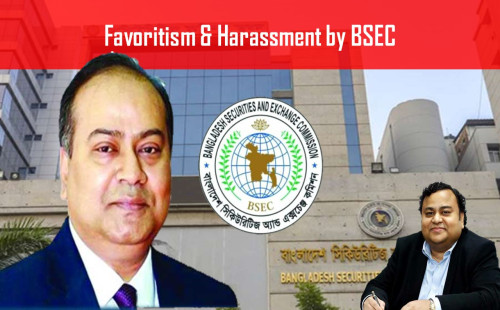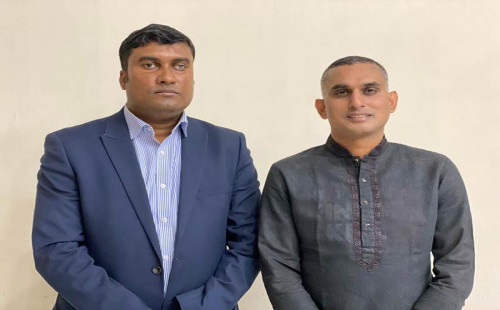Capital Market Regulator, BSEC Faces Criticism for Unprecedented Corporate Interventions and Alleged Favoritism

Capital Market Regulator, BSEC
Faces Criticism for Unprecedented Corporate Interventions and Alleged
Favoritism
Under
Shibli Rubayat Ul Islam’s leadership, the Bangladesh Securities and Exchange
Commission (BSEC) has faced mounting criticism for its aggressive interventions
in controlling capital market intermediaries, often through regulatory
overreach, coercive tactics, and consolidation of power. As BSEC Chairman,
Shibli Rubayat has positioned these moves as essential reforms, but they
reflect a more authoritarian approach that could threaten corporate
independence and investor confidence.
Shibli Rubayat’s tenure has seen BSEC repeatedly push its authority, reshaping company boards and initiating inspections that have contributed to market instability. For example, Shibli Rubayat has forcibly restructured the boards of at least 26 publicly listed companies—a process many industry experts argue was designed more to secure control than to safeguard investor interests. Among these interventions, one of the most contentious involves Emerald Oil, where BSEC’s actions led Minori Bangladesh to assume control with regulatory facilitation. In this case, critics allege irregular practices, including abrupt board reshuffling and issuing placement shares without verified bank transactions, leading to a manipulated share price increase from BDT 8 to BDT 180. These moves, which some contend were politically motivated, have raised questions about BSEC’s true priorities.
RACE Asset Management, the country’s largest private asset management company, has also come under BSEC’s spotlight under Shibli’s leadership. In early 2023, BSEC launched an inspection of RACE’s mutual funds—a move allegedly orchestrated with RACE director Chowdhury Nafeez Sarafat, who reportedly has close ties to Shibli Rubayat. RACE complied with the inspection demands, yet sources within BSEC allege that the committee’s motives went beyond routine oversight and aimed to wrest control of RACE’s assets. Sources inside and outside BSEC argue that the inspection report, delayed by numerous extensions, was rife with errors and glaring inaccuracies, with findings that contradicted basic accounting principles.
Even top BSEC officials questioned the report’s credibility, expressing dismay at the committee’s conclusions. Accounting and legal professionals similarly discredited the report, citing misinterpretations of both legal and accounting principles. For some, the flawed findings hinted at an agenda that veered away from sound oversight and toward favoritism for key individuals within RACE and BSEC.
The influence of Chowdhury Nafeez Sarafat, with close ties to Shibli Rubayat, has only deepened concerns over BSEC’s impartiality. Sources within BSEC confirmed that Sarafat leveraged his relationship with Shibli to create regulatory pressures aligned with his own interests rather than investor benefits. This influence has raised questions about whether BSEC’s interventions serve as legitimate oversight or as mechanisms for personal gain.
BSEC’s frequent restructuring of corporate boards and facilitation of ownership transfers has fueled ongoing concerns about governance standards and transparency within the commission itself. These changes, often benefiting figures close to the Chairman and others affiliated with the Awami regime, have heightened fears in Bangladesh’s financial sector and left companies vulnerable to forced reorganization.
While regulatory oversight is essential to any capital market, BSEC’s tactics under Shibli Rubayat have prompted many to question the balance between regulatory enforcement and coercive control. As BSEC continues to exert pressure on Bangladesh’s financial institutions, industry experts worry about a possible misalignment between the commission’s public mandate and the interests of those in power, leaving the broader market—and its investors—caught in the middle.








